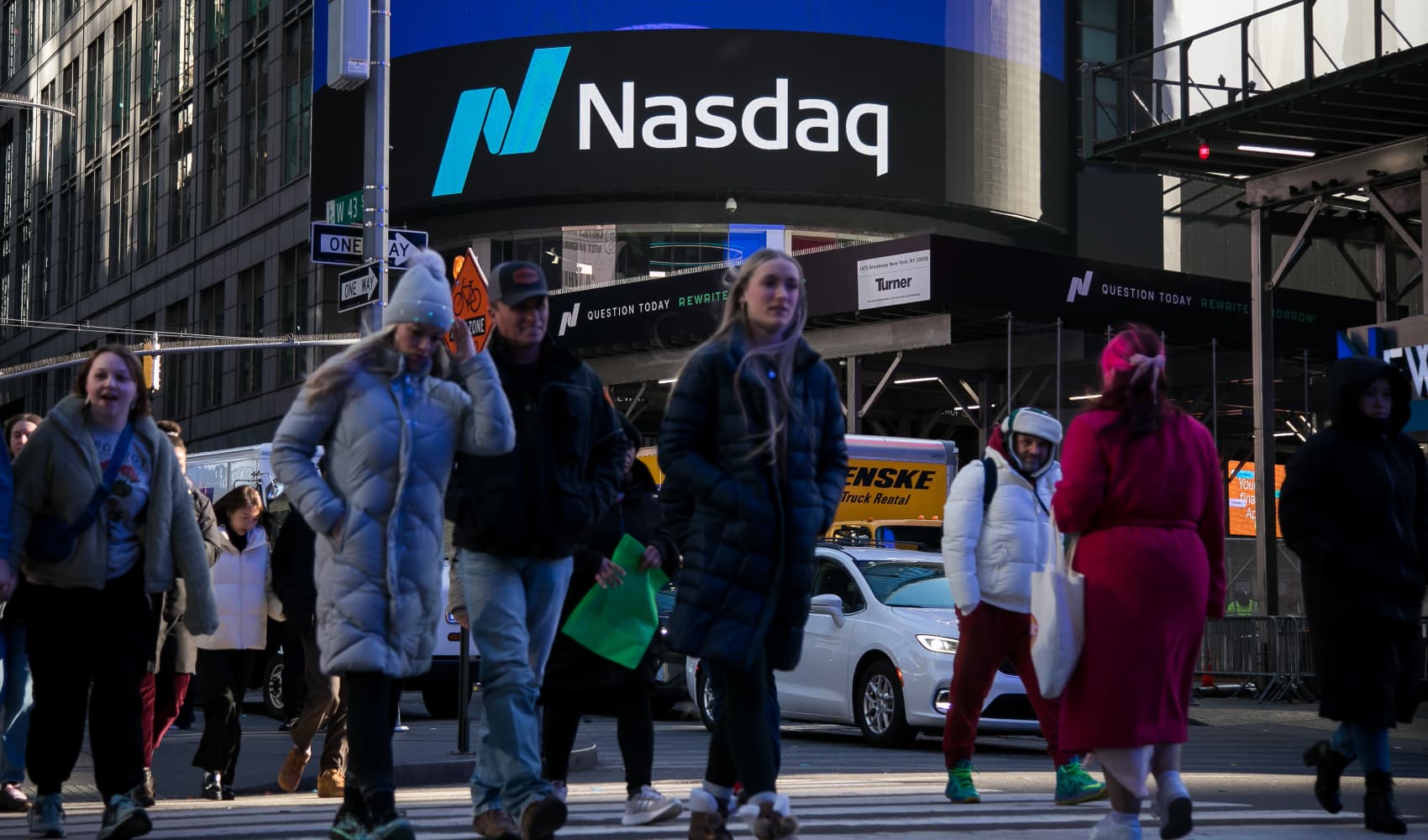
Thousands of United Auto Workers members are officially on strike after three Detroit automakers failed to reach an agreement with the union, which represents about 146,000 workers at Ford, GM and Stellantis, by a Thursday night deadline, CNBC reports.
One major issue on the table is worker pay. The union proposed 40% hourly pay increases over the next four years. The average U.S. autoworker on a manufacturing production line earns about $28 per hour as of August, according to data from the Bureau of Labor Statistics. That's up $1 from the previous year.
Watch NBC6 free wherever you are
>Autoworker pay at "The Big Three" works on a tiered system, which was introduced in the aftermath of the 2008 auto industry crisis, where more recent hires start at lower rates of pay than more tenured workers.
Top-tier workers (those hired in 2007 or earlier) earn an average of $33 per hour, CBS News reports, based on contract summaries for the Big Three. Lower-tier workers (hired after 2007) earn up to $17 an hour.
Get local news you need to know to start your day with NBC 6's News Headlines newsletter.
>Nationwide, autoworkers' average real hourly earnings has fallen 19.3% since 2008, according to research from the left-leaning Economic Policy Institute.
Meanwhile, Ford CEO Jim Farley earned $21 million in total compensation last year, the Detroit News reported. Stellantis CEO Carlos Tavares made $24.8 million, according to the Detroit Free Press. And GM CEO Mary Barra earned nearly $29 million in 2022 pay, Automotive News reported.
"Obviously, CEOs should be the highest-paid person in an enterprise, but then the question is exactly just how much higher than everyone else," Josh Bivens, chief economist at EPI, told NPR.
Money Report
CEO pay at the Big Three has grown 40% in the last decade, according to EPI — in line with the UAW's demands for 40% pay increases for autoworkers.
UAW President Shawn Fain said Wednesday Ford has offered a 20% increase over the four years of the deal, followed by GM at 18% and Stellantis at 17.5%. GM raised their offer Thursday to a 20% wage increase.
"I'm extremely frustrated and disappointed," Barra told CNBC Friday morning. "We don't need to be in strike right now. We put a historic offer on the table."
Profits at the struck auto companies increased 92% from 2013 to 2022, totaling $250 billion, according to EPI. Striking workers say they haven't shared in their company's financial success.
President Joe Biden weighed in on negotiations Friday, saying, "Auto companies have seen record profits including the last few years because of the extraordinary skill and sacrifices of the UAW workers. Those record profits have not been shared fairly, in my view, with the workers."
CEO pay growth outpaces worker wages across industries
The auto industry is just one example of how executive pay has skyrocketed faster than the typical wage growth for everyday workers.
The average CEO at a top U.S. company was paid $27.8 million in 2021, including stock awards — 399 times as much as the typical worker — according to research published by EPI. From 1978 to 2021, CEO pay grew by 1,460%, adjusted for inflation, versus just 18.1% for the typical worker.
The UAW also proposed the elimination of compensation tiers and a restoration of cost-of-living adjustments, as well as other workplace protections like a reduced 32-hour workweek, a shift back to traditional pensions, improved retiree and parental leave benefits, and more.
"For the first time in our history, we will strike all three of the 'Big Three' at once," Fain said Thursday in live remarks streamed on Facebook and YouTube. "We are using a new strategy, the 'stand-up' strike. We will call on select facilities, locals or units to stand up and go on strike."
About 12,700 workers will be on strike at three facilities nationwide, starting at GM's plant in Wentzville, Missouri; Ford's plant in Wayne, Michigan; and Stellantis' plant in Toledo, Ohio.
The targeted strikes aim to bring a work stoppage to key plants that then cause plants further down the line to stop production without needed materials. The strategy is unprecedented: The union may increase the number of strikes based on the status of negotiations.
Want to be smarter and more successful with your money, work & life? Sign up for our new newsletter!
Want to earn more and land your dream job? Join the free CNBC Make It: Your Money virtual event on Oct. 17 at 1 p.m. ET to learn how to level up your interview and negotiating skills, build your ideal career, boost your income and grow your wealth. Register for free today.






